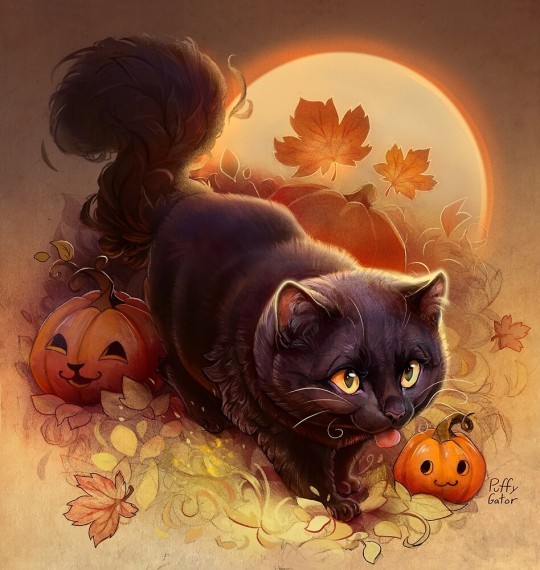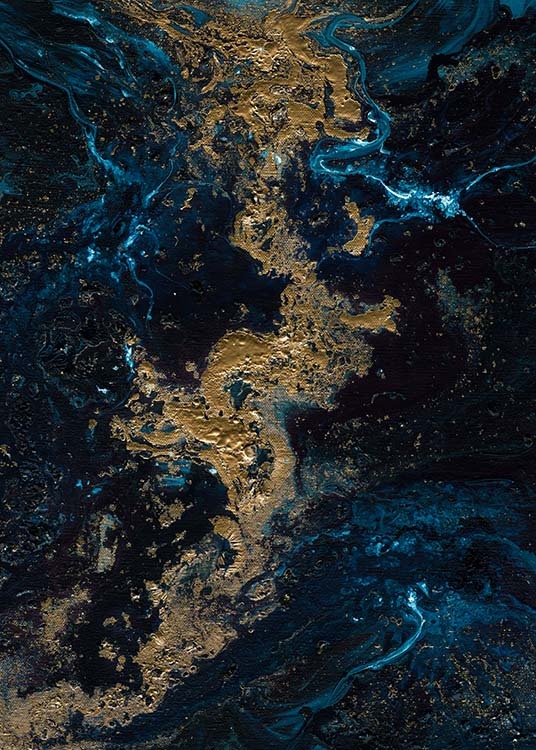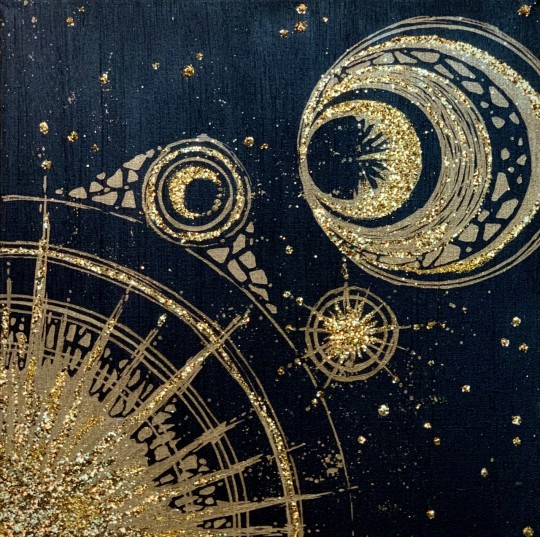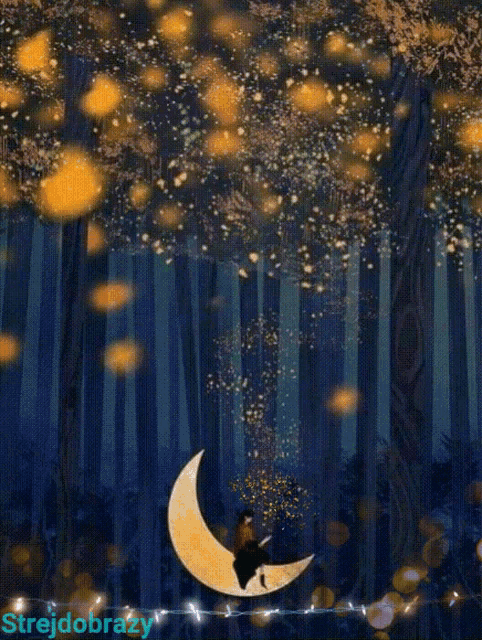Text
no cause we left him here so wtf happened


21K notes
·
View notes
Text

Pardon me while I shake the dust off and get used to Tumblr again, but HEY HERE’S A GOTHIC FANTASY REIMAGINING OF SLEEPY HOLLOW BUT ITS KATRINA & THE HORSEMAN AND THERES MAGIC! K thx
1 note
·
View note
Text

0 notes
Text
🧜🏻♀️ Mythology Behind TSM 🧜🏻♀️
It’s no secret that The Syren’s Mutiny is above all, grounded in Celtic mythology (including Irish, Scottish, and Germanic Celts). So, I wanted to talk more about some of those mythology elements I pulled from!
We’re going to start with Cliodhna, my syren queen and goddess. I pulled a lot of my Cliodhna from the mythological Cliodhna, so I felt she was important to start with.
Other than the information in the slides, Cliodhna often had a collection of colorful birds that flew with her and who’s songs were able to both cure ills or drive mortals to madness, depending on Cliodhna’s mood.
Cliodhna was such an interesting aspect of Irish mythology, I knew I had to include her. Taking from the more…malevolent elements of her story, she became my queen of the syrens, goddess of the seas, of love, of beauty, and of women.
If this mythology interests you, check out The Syren’s Mutiny 🧜🏻♀️🏴☠️
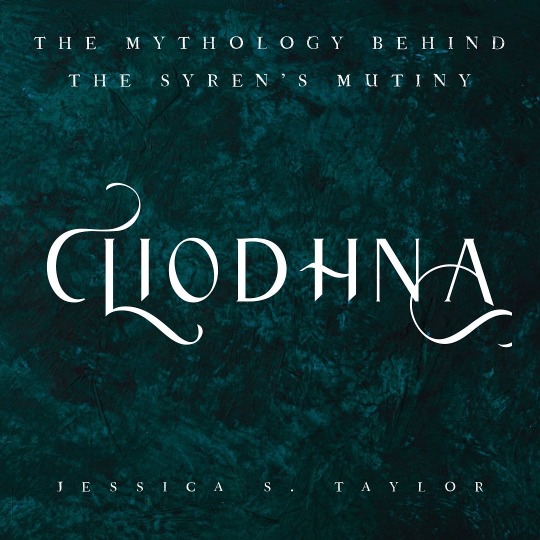
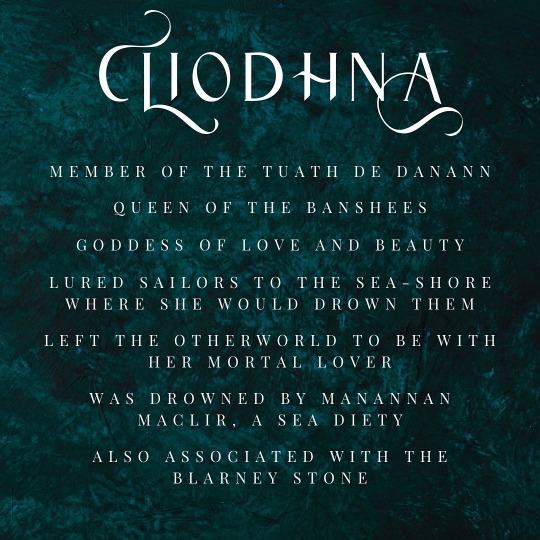
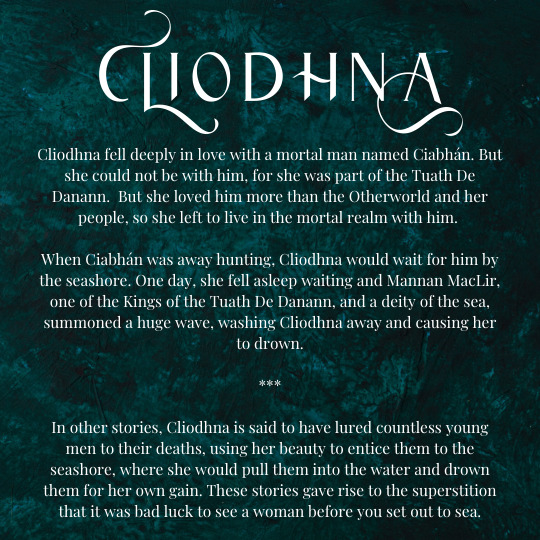
#fantasy books#indie author#bookish#the syren's mutiny#mermaids#sirens#cliodhna#celtic mythology#irish mythology
19 notes
·
View notes
Photo

I just can't get over how gorgeous these look together!
Personally, I'm a big fan of duologies. They're just the right length to get a good story but not get overwhelmed or bored.
So, what are your favorite duologies??
Preorder The Captain's Revenge 👉 books2read.com/The-Captains-Revenge
#thesyrensmutiny#thecaptainsrevenge#kindlereader#koboreader#nookreader#ebooks#ebookreader#fantasybooks#fantasyreader#romancereader#readersofig#bookstoread#bookrecs#bookcollector#fantasyromance#romantasy#romancereads#newadultromance#piratebooks#mermaidbooks#pirateslife#pirateromance
0 notes
Text



The Captain’s Revenge cover is officially here!! The duology is looking HOT together!
Caelum would like his vengeance now, and nothing is going to stop him from getting it.
Here’s a bit of what you can expect from book 2…
🏴☠️
Start with The Syren’s Mutiny: authorjessicastaylor.com/the-syrens-mutiny
Preorder The Captain’s Revenge: authorjessicastaylor.com/the-captains-revenge
#the Syren’s mutiny#the captains revenge#cover reveal#pirates and sirens and romance oh my#pirate books#pirate romance#sirens#mermaids#fantasy romance
1 note
·
View note
Text

0 notes
Quote
But something about her drew me in like a moth to a flame, and I was curious to see what getting burned would feel like.
The Syren’s Mutiny by Jessica S. Taylor
#thesyrensmutiny#indie author#bookish#book quotes#fantasyromance#fantasy books#pirates and sirens and romance oh my#my pirate is hot
1 note
·
View note
Text
adding characterization to a story you've already written

How? + What?
These are the questions to take with you when going through a draft to add characterization.
Your character will already be doing and saying things in a set situation. You got the most arduous part of writing down-- the story is there.
So now you're going to take that and ask WHAT? or HOW? with certain details. An interrogation of the story to dig more out when a scene might feel empty or the characterization feels off.
Let's say you want a scene where the character cries in a car.
Anyone can cry in a car.
But only YOUR character is going to cry in the parking lot of their old high school, so angry about their '96 Toyota's heater being broken that they slam their fist against the vents.
HOW? is about defining present behavior.
Take the situation your character is put in.
How do they react, how do they make decisions, how do they set and complete goals, how do they approach emerging emotions, how do they think about or observe the situation?
How do they deal with something like this based on personality, values, and their current life?
All of these things are informed by larger, earlier forces but "how?" is about the state of things that fluctuate.
With the car, present behavior is their anger at the broken heater and the decision to physically lash out. The fluctuation of personality, values, and current life converge in a way that is unique to this moment and this reaction.
WHAT? is about specificity with already-established reality.
Look at every variable in the scene, like the car or the location. They are established. The character had the car before the passage began. This was their old high school before the passage began. Making these variables specific tells us about the character's world outside this scene. What car? What significance of the location? Those are exclusive to the character and existed before the scene. At this point, they are out of the control of the character and therefore do not fluctuate.
An old Toyota with a broken heater and the parking lot of their former high school give us background information.
The main idea of this technique is to push yourself as a writer. Specificity, definition, and characterization enrich the narrative and add authentic complexity to your world.

As always, take what you found useful and forget the rest! Happy writing.
[call it good] writing
1K notes
·
View notes
Text
— aesthetic words to fill up your vocabulary ♡
✦ if you're tired of using the same repetitive words to describe feelings or actions on your writing, here are some aesthetic words that are not frequently used to help you evolve your vocabulary better and also maybe help you with creative titles <3
ABENDROT: the color of the sky while the sun is setting.
ABIENCE: the strong urge to avoid someone or something.
ACHROOUS: colourless.
AEQUOREAL: marine, oceanic.
AESTHETE: someone with deep sensitivity to the beauty of art or nature.
ALIFEROUS: having wings.
AMITY: warmth and heartfelt friendliness in a friendship; mutual understanding and a peaceful relationship.
AMBROSIAL: fragrant, delicious.
ANTHOMANIA: great love for flowers.
AQUAPHILE: someone who is an enthusiast of all things related to the water.
ARENOCOLOUS: living or burrowing in sand.
ASPERSE: change falsely or with malicious intent; attack the good name and reputation of someone.
ASTERISM: agroup of stars; a constellation; a cluster of stars.
ATTAR: essential oil or perfume obtained from flowers.
AUREATE: golden or gilded; brilliant, splendid.
AURICOMUS: with golden or yellow colored foliage.
AVIOTHIC: the strong desire to be up in the air or to fly.
BALTER: to dance artlessly, without particular grace and/or skill but usually with enjoyment.
BATHIC: pertaining to depths, especially of sea.
BELAMOUR: the one who is loved; a beloved person.
BELLICOSTIC: aggressive, belligerent, warlike.
BENEFICENCE: the quality of being kind or helpful or generous.
BERCEUSE: a quiet song intended to lull a child to sleep.
BLÁFAR: indicating the freshness and beauties of youth or health; attractive and possessing charm.
BRONTIDE: the low rumble of a distant thunder.
BURBLE: to speak in an excited manner.
CAELITIS: the divinities who dwell within the celestial planes.
CATHARSIS: the release of emotional tension, especially through kinds of art or music.
CELERITOUS: swift, speedy, fast.
CERAUNOPHILIA: loving thunder and lightning and finding them intensely beautiful.
CHEVELURE: the nebulous tail of a comet.
CINGULOMANIA: a strong desire to hold a person in your arms.
COCCINEOUS: bright red; scarlet.
COCKAIGNE: an imaginary land of luxury and idleness.
CONSTELLATE: to eluster; to compel by stellar influence.
COSMOGYRAL: whirling around the universe.
CORDOLIUM: heartache; heartfelt sorrow.
CORUSCATE: to reflect brillantly, to sparkle.
CRAMOISY: of a crimson color.
CREATURELY: a person who is controlled by others and is used to perform unpleasant or dishonest tasks for someone else.
CRYSTALLOMANIA: an obsession with crystals and other crystalline objects.
CHRYSALISM: the amnotic tranquility of being indoors during a thunderstorm.
CLINQUANT: glittering with gold and silver.
CLYSMIC: cleaning, washing.
CUPIDITY: greed for money or possessions.
CYANEOUS: a sky-blue color.
CYNOSURE: guiding star; a object of common interest.
DARKLING: of or related to darkness.
DÉCLASSÉ: having fallen in social status.
DEIFORM: god-like or divine in nature.
DEMERSAL: that lives near the bottom or a body of water.
DESIDERIUM: an ardent longing, as for something lost.
DISPITEOUS: cruel and without mercy.
DOUX: sweet, soft, mild, gentle.
DRACONTINE: belonging to a dragon.
DYSANIA: the state of finding it hard to get out of bed in the morning.
ECCEDENTESIAST: someone who fakes a smile.
EFFLORESCENCE: a period or state of blooming, blossoming.
ELEGY: a poem of serious reflection, typically a lament for the dead.
ELEUTHEROPHILIST: someone who advocates free love.
ELYSIAN: beautiful or creative, divinely inspired; peaceful and perfect.
EMACITY: desire or fondness for buying things.
EMPYREAL: pertaining to the sky; celestial.
EPHIALTES: a nightmare; the demon Incubus that supposedly causes a nightmare.
EPICARICACY: the joy that results from others misfortune.
EREMOPHOBIA: the deep fear of stillness, solitude, or deserted places.
ETHEREAL: extremely delicate, light, not of this world.
EUMOIRIETY: happiness due to state of innocence and purity.
FLORENTIS: abounding in flowers; being in bloom and adorned with plentiful flowers.
FREICEADAN: guard, garrison, watch, sentinal.
FULMINATE: cause to explode violently and with loud noise.
FURCIFEROUS: brat; rascally, scandalous.
GLOAMING: twilight, dusk.
GRAME: anger, wrath, scorn; sorrow, grief, misery.
HALCYON: calm and peaceful; happy, prosperous.
HELLION: a rowdy or mischievous person.
HELIOPHILIA: desire to stay in the sun; love of sunlight.
HEAVENIZE: to render like heaven or fit for heaven, to purify and make a holy place or a person.
HENOTIC: promoting harmony or peace.
HIRAETH: a homesickness for a home you can't return to, or that never was.
HOLILY: belonging to or derived from or associated with a divine power.
HYPNAGOGIC: the state immediately before falling asleep.
IGNICOLIST: a worshiper of fire.
ILLECEBROUS: attractive and alluring.
IMPLUVIOUS: soaked with rain.
INCANDESCENCE: light produced by high temperatures.
INCALESCENCE: the property of being warming.
INCENDIARY: designed for the purpose of causing a fire, likely to cause anger or violence.
INEFFABLE: too great or extreme to be expressed or described in words.
INSOUCIANT: free from worry, concern or anxiety.
IRENIC: aiming or aimed at peace, promoting peace.
IRIDESCENT: producing a display of rainbow-like colors.
INVIDIARE: to envy.
ISOLOPHILIA: a strong preference and affection for solitude.
KALOPSIA: the delusion of things being more beautiful than they really are.
KALON: beauty that is more than skin deep.
LACONIC: expressing much in a few words.
LACUNA: a blank space; a missing part.
LATIBULE: a hiding place, a place of safety and comfort.
LAMBENT: to glow or flicker softly. Luminous, light or brilliant.
LIMERENCE: the state of being infatuated with another person.
LONGANIMITY: still suffering while planning revenge.
LOUCHE: disreputable; morally dubious.
LUCIFORM: resembling light in appearance; having, in some respects; the nature of qualities of light.
LUMINESCENCE: light produced by chemical, electrical or physiological means.
MALTALENT: the negative emotions of wanting injury or harm to befall someone; a hostile behavior or attitude towards someone considered an enemy.
MARMORIS: the shining surface of the ocean.
MAZARINE: a dark blue color; rich blue or reddish-blue color.
MELIORISM: the belief that the world gets better; the belief that humans can improve the world.
MÉLOMANIE: an excessive and abnormal love and deep attraction to music and melody.
MERCURIAL: subject to sudden or unpredictable changes.
MESMERIC: appealing; drawing attention.
MORDACIOUS: biting or given to biting; biting or sharp in manner; caustic; capable of wounding.
MORPHEAN: of or relating to Morpheus, to dreams, or to sleep.
MOXIE: courage, nerve, determination.
NEBULOCHAOTIC: a state of being hazy and confused.
NEFARIOUS: wicked, villainous, despicable.
NEMESISM: frustration, anger or aggression directed inward, toward oneself and one's way of living.
NERITIC: pertaining to shallow coastal waters.
NOETIC: of or associated with or requiring the use of mind.
NOIRCEUR: the state of being pitch black in color; a state of lacking illumination.
NUBIVAGANT: wandering in the air, moving through the air.
NUMINOUS: spiritual or supernatural; surpassing comprehension or understanding; mysterious.
ONEIRODYNIA: restless, disturbed sleep, characterized by nightmares and sleepwalking.
OPHIOMORMOUS: snake-like.
ORPHIC: mysterious and entrancing, beyond ordinary understanding.
PETRICHOR: the scent of rain on dry earth.
POIESIS: creation; creative power or ability.
PORPHYROUS: purple; of purple hue.
PRATE: to talk excessively and pointlessly.
PROCELLOUS: tempestuous, stormy.
QUIDDITY: the essence of something.
QUIXOTIC: extravagantly chivalrous or romantic; visionary, impractical or impracticable.
RANTIPOLE: a wild, reckless young person; to be wild and reckless.
REDAMANCY: the act of loving the one who loves you; a love returned in full.
REDOLENT: having a strong distinctive fragrance; serving to bring to mind.
REMEANT: coming back, returning.
RESPLENDENT: having brilliant or glowing appearance; dazzling and impressive in appearance through being richly colorful or sumptuous.
REVERIE: a state of being pleasantly lost in one's thoughts; a daydream.
RODOMEL: juice of roses mixed with honey.
ROSEATE: rose-like; overly optimistic.
RUTILANT: glowing or glittering with red or gold light.
SANGUINEOUS: accompanied by bloodshed.
SASHAY: to strut or move about in an ostentatious or conspicuous manner.
SCIAMACHY: a battle against imaginary enemies; fighting your shadow.
SEQUACIOUS: lacking independence of originality of thought.
SERAPHIC: beautiful and pure; having a sweet nature befitting an angel or a cherub; of or relating to an angel of the first order.
SERENDIPITY: finding something good without looking for it.
SKINT: having little or no money avaliable.
SOLIVAGANT: someone who wanders or travels the world alone; a solitary adventurer.
SOMNIATE: to dream, to make sleepy.
SORTIGER: delivering prophecies of the future; having the qualities of being oracular.
STELLIFEROUS: having or abonding with stars.
STELLIFY: to transform from an earthly body into a celestial body; to place in the sky as such.
SUCCIDUOUS: ready to fall, falling.
SPUME: a white mass of bubbles or froth on the top of a wave.
SYNODIC: relating to or involving the conjunction of stars, planets or other celestial objects.
TARANTISM: the uncontrollable urge to dance.
TEMENOS: a sacred circle where no one can be oneself without fear.
THANATOPHOBIA: fear of death.
TYYNEYS: the state of peacefulness; absent of worry or fear, being composed and at ease.
ULTRAMARINE: beyond the sea; greenish-blue color.
VELLEITY: a wish or inclination not strong enough to lead to action.
VENERATION: a profound emotion inspired by a deity.
VESPERTINE: in or of the evening; setting at the same time as, or just after, the sun.
VERDANT: with plants and flowers in abundance.
VERMEIL: a liquid composition applied to a gilded surface to give luster to the gold.
VERTICORDIOUS: to turn the heart from evil.
VIOLESCENT: tending toward violet color.
VORFREUDE: the joyful anticipation that comes from imagining future pleasures.
WANDERLUST: a strong desire to travel and explore the world.
WHIST: to hush or silence; to still, to become still.

cerezzzita©, 2022 · all rights reserved
10K notes
·
View notes
Text

there are many paths to the goblin market...
a moodboard for my adult fantasy novel inspired by howl's moving castle X labyrinth novel 🌿💀
images from unsplash
195 notes
·
View notes
Text
Writing Scenes Out of Order
Gonna be honest with y'all, I have never ever written a story completely in order. I am actually incapable of doing that. Even though I write the most detailed outlines known to man before I even think about writing, I still can’t write the scenes in order. I swear by this because I sincerely believe that writing scenes out of order increases my productivity which I’ll talk about later. Even if you haven’t done this before, I recommend everyone try it at least once, so without further ado, here are a few reasons that you should write your stories out of order.
You Can Write The Ending First
When you write your scenes in order, generally that means that you’re going to write the ending last. In my experience, the ending is one of the most important things in your story, so I recommend that even if you write everything else in order, always write the ending first. Writing the ending first always gives you a light at the end of the tunnel. It gives you a destination to eventually reach. Even when you feel like your story is going absolutely nowhere, it allows you to go back and see what you want the ending to look like from the beginning which should help your motivation and hopefully lessen that pesky writer’s block!
Oh, Those Continuity Issues
Continuity issues are the absolute worst. I can never seem to remember the way that I described stuff at the end of the book when I’m writing everything back at the beginning. One thing that does get frustrating about writing scenes out of order, is keeping up with continuity like what season it is, what characters have already met, and even who is alive and dead at certain points. Writing scenes in order eliminates these issues because you are writing everything in the order that it happens. I would most definitely recommend keeping an outline or at least a sheet of notes when you’re writing scenes out of order, so that you can keep yourself organized and lessen the continuity issues that you have to go back and fix in later drafts!
You Can Follow Your Inspiration
I plot every scene out extensively, but if I do have an idea for a scene, I immediately write it down and worry about where it fits into the story later. For me, this increases my motivation because at least I’m writing something even if it wasn’t in my original outline. Every story has scenes that aren’t the most interesting, and as writers, those can be the hardest scenes to write. Especially if you write all of the interesting scenes first, you won’t have anything to look forward to when you’re struggling through the more transitional parts of the story. This is just my opinion, but whenever I write in chronological order, my motivation goes down a lot. I like writing whatever scenes I want to write instead of writing what comes next in the story. Knowing that I can write whatever scene I want to next makes me super excited about writing
Sprinkle In That Foreshadowing
Y’all know how much I love me some well done foreshadowing. It’s simply one of the best things about reading and writing. But, writing foreshadowing can be really complicated if you aren’t sure how the story ends or even how the foreshadowing will fit into the story later. Because I normally write the ending scenes first, when I finally get around to writing the beginning scenes, I can easily sprinkle in little bits of foreshadowing or allusions to later scenes. It also helps me not overly foreshadow anything because I can go to the end and make sure I’m not doing too much.
2K notes
·
View notes
Text
tips for setting the scene
it’s easy to get caught up in dialogue or a character’s internal dialogue and forget altogether that they, too, exist in their own physical world. as authors, it’s primarily our job to convey the exact amount of information: the reader is on a need to know basis, but they also need to know enough to draw their own conclusions. i’ll admit, it’s a difficult task, but here are some tips to help set a scene:
- imagine the world from the eyes of your character: how do they see things? do they see the big picture first or are they drawn to smaller details that others don’t often notice? what’s pulling their attention away from the action or their own thoughts?
- breathe life into your scenes: i don’t mean the english teacher’s equivalent of “the curtains were blue means that the character is sad.” i’m talking about the blue filter in Twilight that conveys the “constant cover of clouds and rain” and the shift from the Arizona desert to the cool Pacific Northwest. think about all the small details that convey information about a scene and allow the readers to make inferences. if the character walks along a street and the yards shift from overgrown hedges with frayed yard chairs and a birdbath containing a mini swamp to yards with freshly cut grass with white picket fences and ornate wreathes hanging on the doors, you’re providing all of the details for readers to make an inference. context is needed, too, but that will be provided in the whole of your novel or short story. don’t be afraid to provide details and use figurative language.
- spread out your details: did you feel bombarded in the last tip? i provided a lot of details quickly, all at once, without spreading them between action, dialogue, or internal dialogue. i’m not going to stop you from being the next J.R.R. Tolkien if that’s how you like to write, but try not to overwhelm the reader with details all at once. it will feel more natural if you spread things out and allow the reader to feel as if they, too, are with the character in their environment. this is more of a stylistic tip, so take it with a grain of salt and think about what will work best for your novel. always go back to that and to what your character is seeing. how is this all playing out for them? how can you put feeling into the scene?
- place your characters within the scene: where are they in their environment? how are they interacting with the people or objects in it? what do they think about these things? you don’t need to tell the reader everything your character does, but provide enough information so that we don’t get lost in their movement or stagnation. it helps to have someone else read your work if you’re struggling with this part. if they’re lost as to where the character is or what they’re doing, chances are a good portion of your readers will be confused, too. check out your prepositions. are there too many? too few? use them, but don’t abuse them.
happy writing! if you need help setting a scene or have any questions, our ask box is always open!
3K notes
·
View notes
Photo


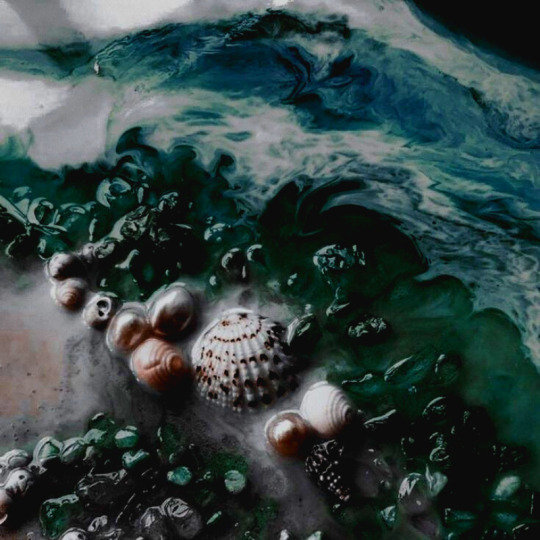

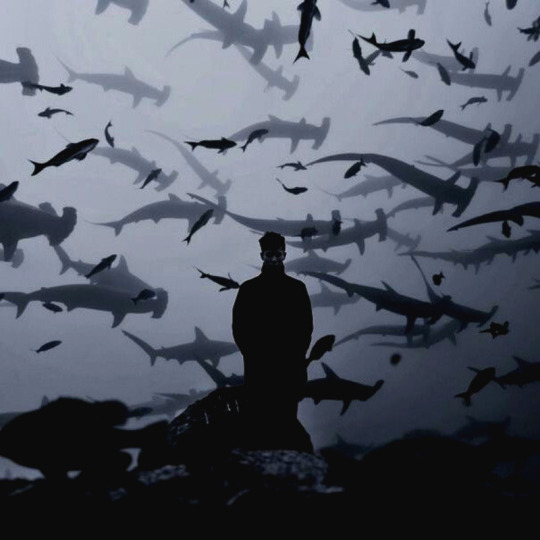



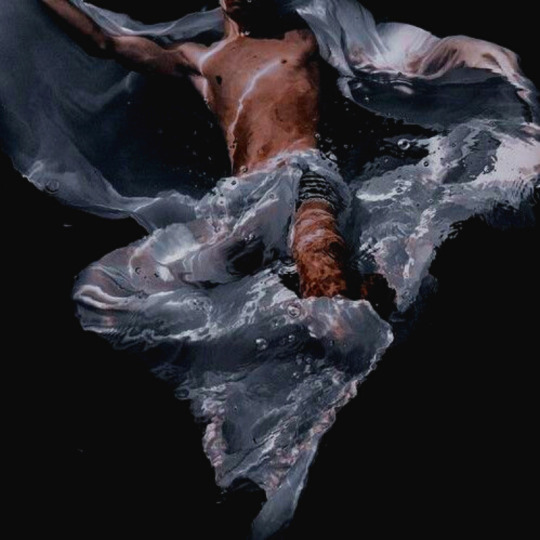
greek mythology: poseidon
poseidon is an olympian god of the sea, earthquakes, floods, drought and horses.
525 notes
·
View notes
